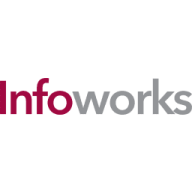

Snowflake and InfoWorks are data management and analytics solutions. Snowflake often leads with its scalability and advanced cloud data architecture, making it appealing for robust cloud data warehousing, whereas InfoWorks caters to those needing extensive in-pipeline processing capabilities with its comprehensive data engineering platform.
Features: Snowflake provides scalability for handling extensive data workloads, advanced data sharing, and seamless cloud-native design. InfoWorks offers automated data engineering pipelines, efficient data integration and preparation, and capable automation of complex workflows.
Ease of Deployment and Customer Service: Snowflake has a straightforward cloud-native deployment requiring minimal setup, with responsive customer support. InfoWorks allows flexible deployment suitable for varied infrastructures with support for customized solutions and tailored setups.
Pricing and ROI: Snowflake’s competitive pricing aligns with cloud-based scalability, typically offering favorable ROI for large-scale operations. InfoWorks may have higher initial costs but justifies its price through efficiency in data pipeline automation, yielding significant ROI for sophisticated workflows.
| Product | Market Share (%) |
|---|---|
| Snowflake | 10.4% |
| InfoWorks | 1.0% |
| Other | 88.6% |

| Company Size | Count |
|---|---|
| Small Business | 29 |
| Midsize Enterprise | 20 |
| Large Enterprise | 57 |
Infoworks is the only solution providing complete functionality in a single platform from data ingestion, data synchronization and the building of data models and cubes
Scale your data warehousing and analytics on Hadoop, not by adding armies of people but instead by using advanced machine intelligence
Infoworks is the complete Data Warehousing solution, eliminating the need to integrate multiple disparate point solutions. Infoworks helps organizations lower their EDW costs now and make business users even more successful.
Infoworks is the only solution providing complete functionality in a single platform from data Ingestion, data Synchronization and the building of data models and cubes. Infoworks achieves all this by automatically crawling and synchronizing data from all data sources, dynamically adapting to schema/data changes and automatically organizing the data sets for high performance query access.
Snowflake provides a modern data warehousing solution with features designed for seamless integration, scalability, and consumption-based pricing. It handles large datasets efficiently, making it a market leader for businesses migrating to the cloud.
Snowflake offers a flexible architecture that separates storage and compute resources, supporting efficient ETL jobs. Known for scalability and ease of use, it features built-in time zone conversion and robust data sharing capabilities. Its enhanced security, performance, and ability to handle semi-structured data are notable. Users suggest improvements in UI, pricing, on-premises integration, and data science functions, while calling for better transaction performance and machine learning capabilities. Users benefit from effective SQL querying, real-time analytics, and sharing options, supporting comprehensive data analysis with tools like Tableau and Power BI.
What are Snowflake's Key Features?
What Benefits Should You Look for?
In industries like finance, healthcare, and retail, Snowflake's flexible data warehousing and analytics capabilities facilitate cloud migration, streamline data storage, and allow organizations to consolidate data from multiple sources for advanced insights and AI-driven strategies. Its integration with analytics tools supports comprehensive data analysis and reporting tasks.
We monitor all Data Warehouse reviews to prevent fraudulent reviews and keep review quality high. We do not post reviews by company employees or direct competitors. We validate each review for authenticity via cross-reference with LinkedIn, and personal follow-up with the reviewer when necessary.